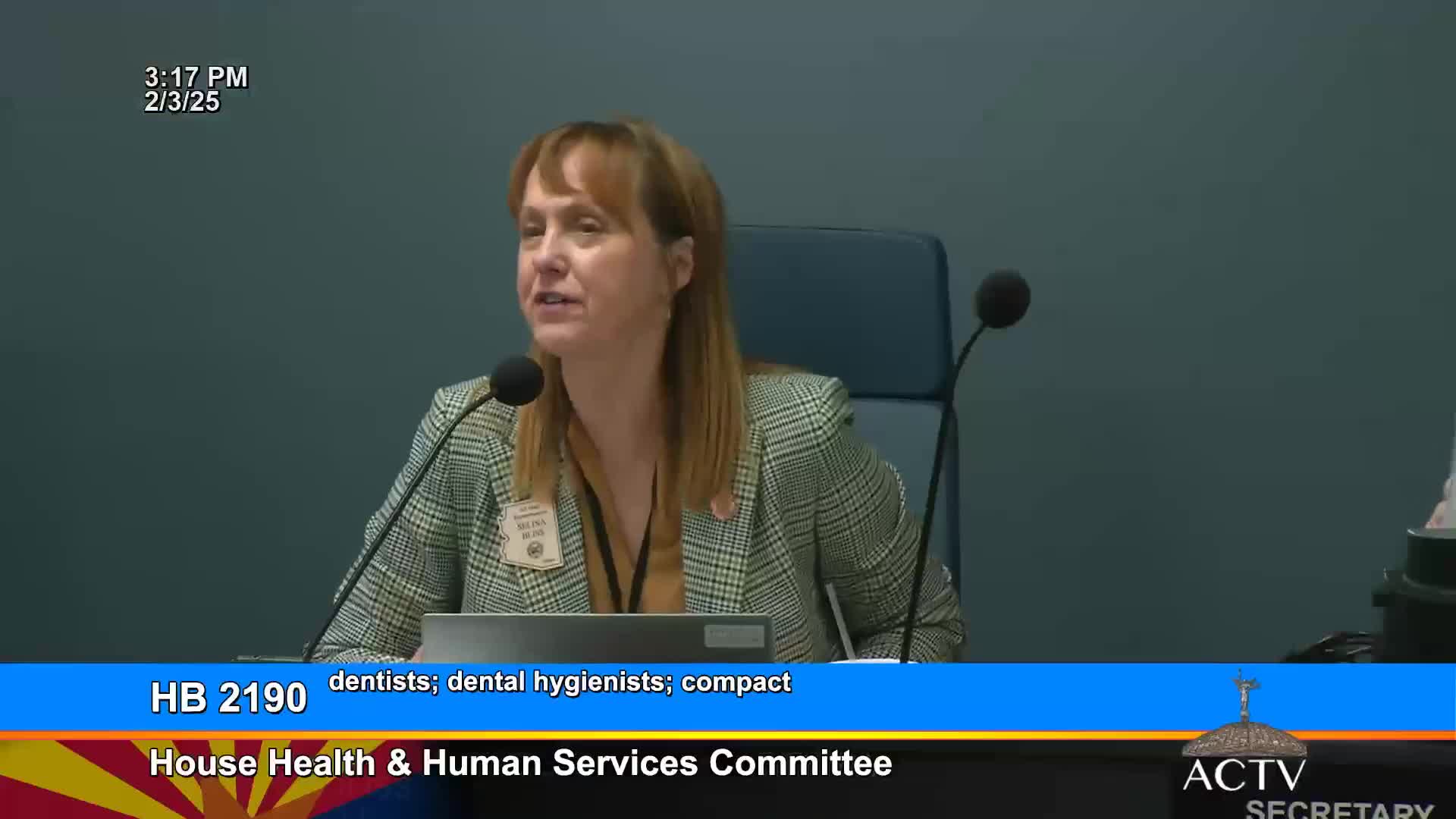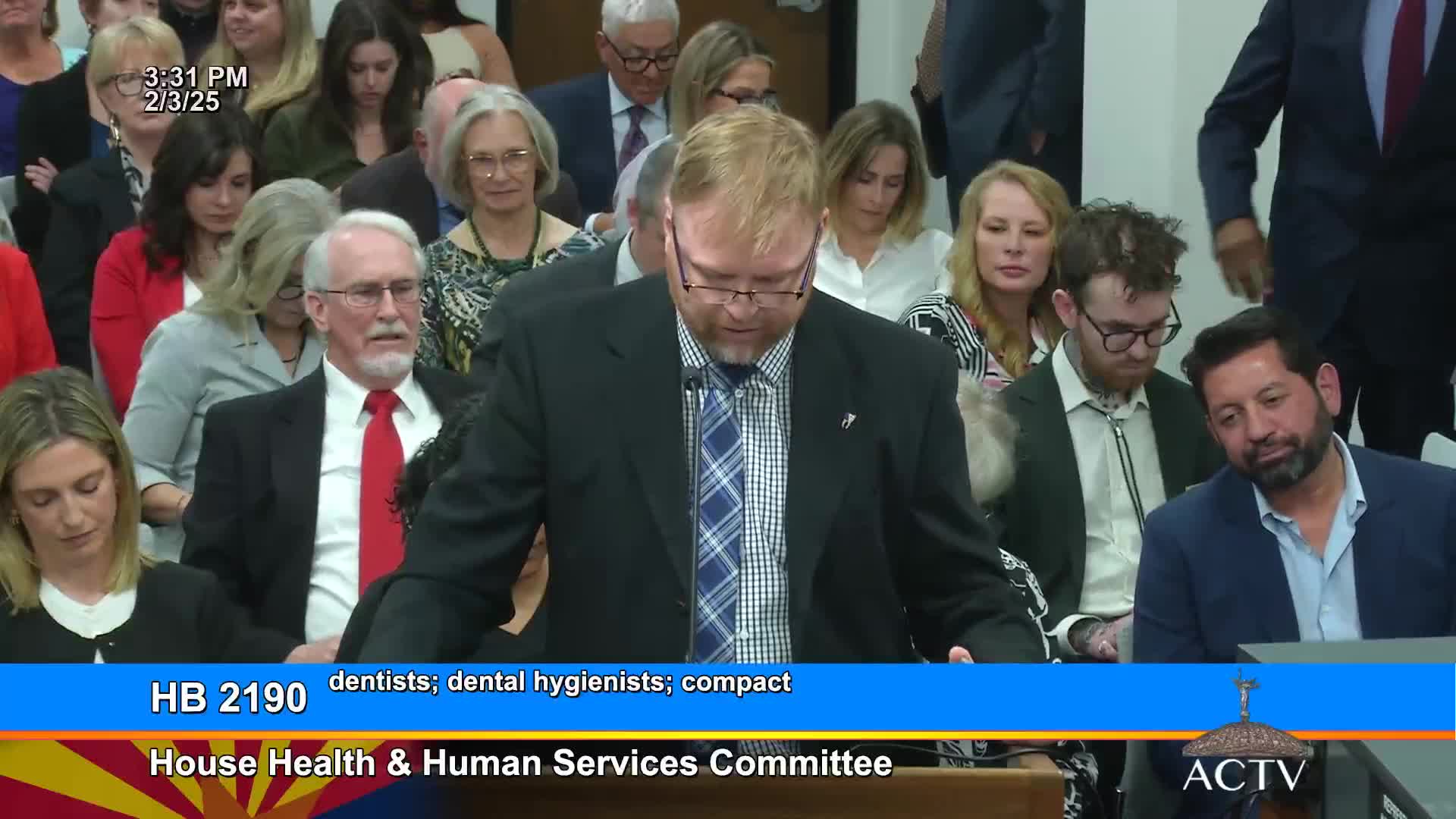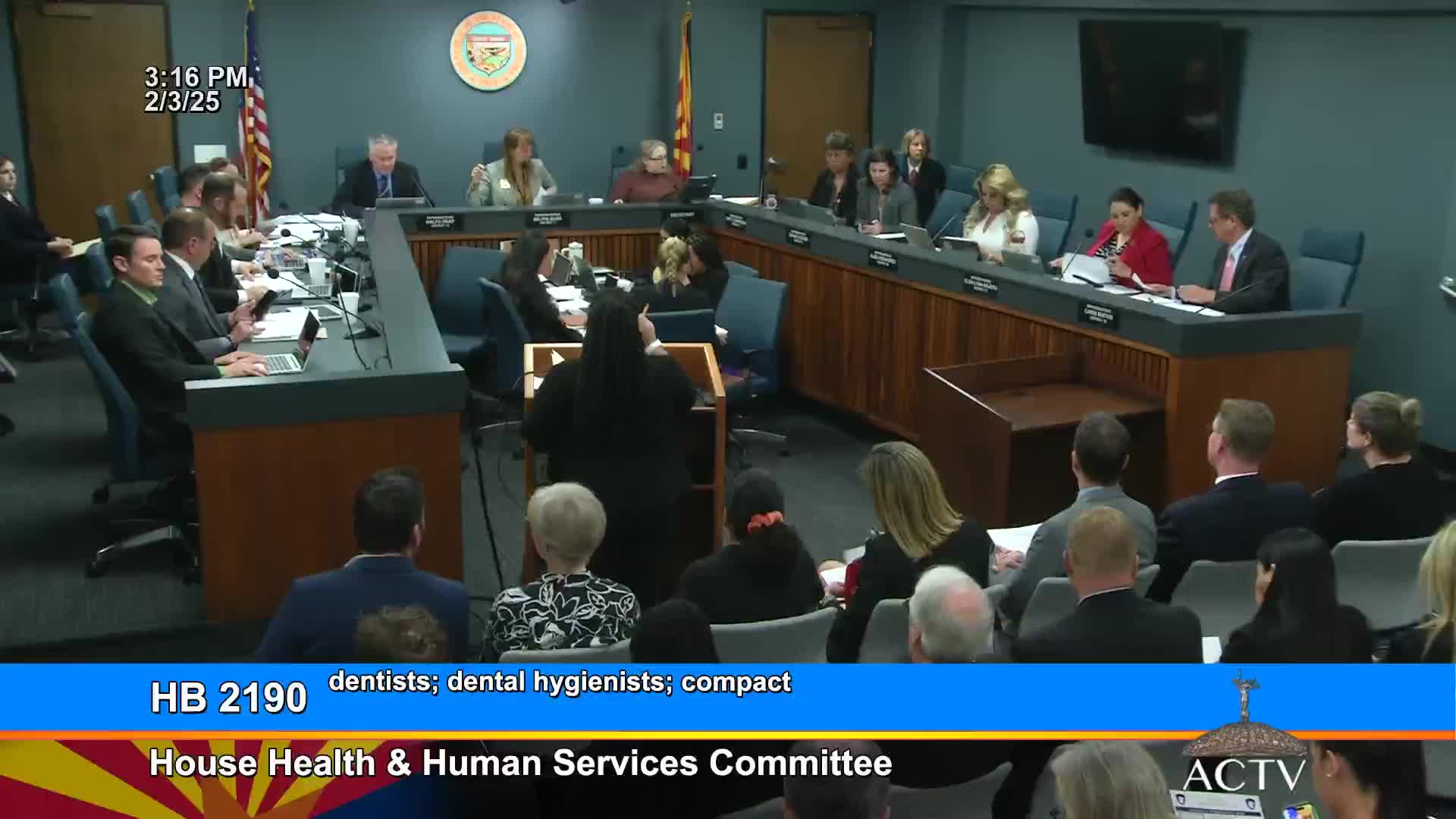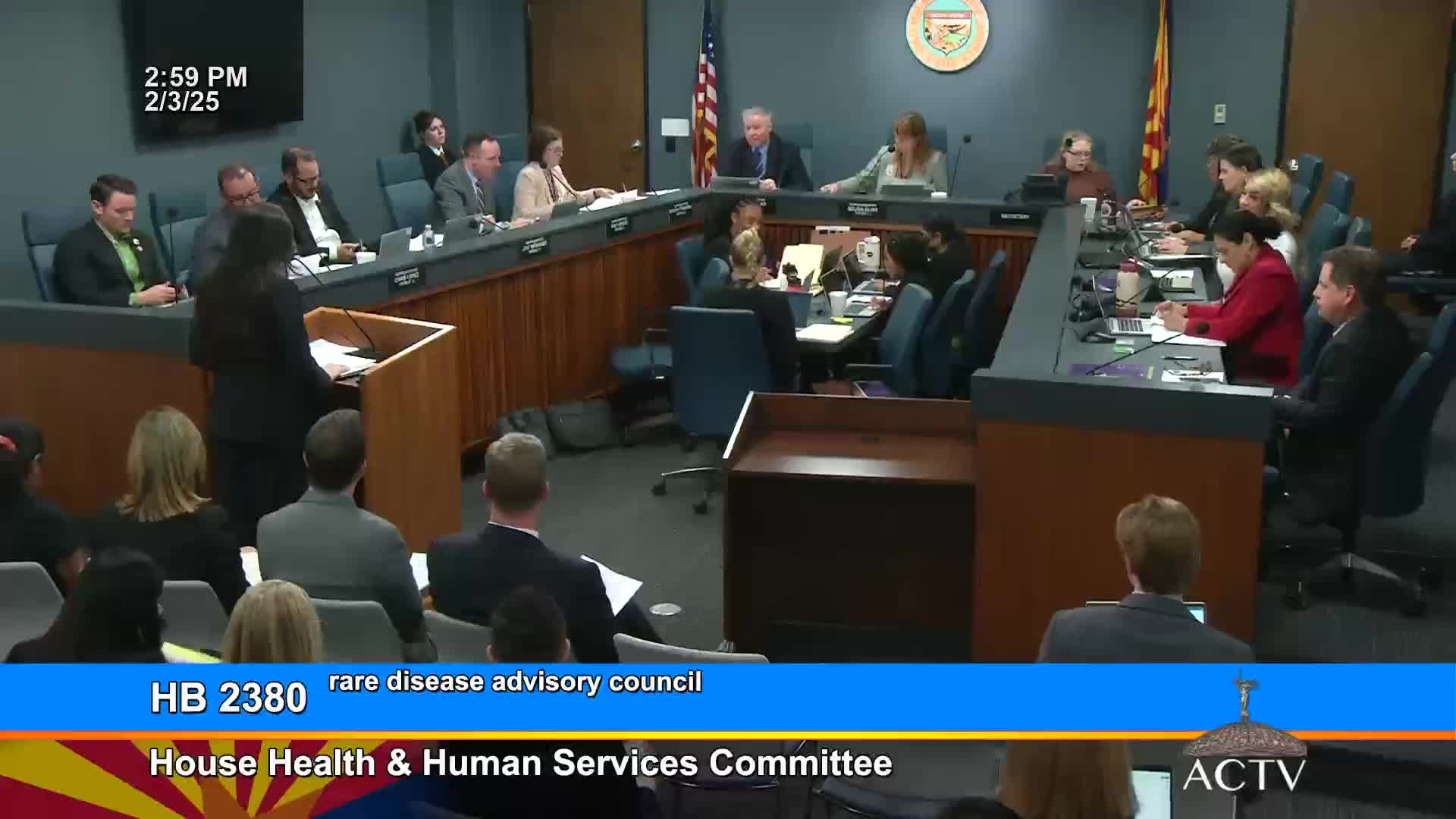Article not found
This article is no longer available. But don't worry—we've gathered other articles that discuss the same topic.

Solari executive outlines statewide 988, 2‑1‑1 and mobile crisis response serving Arizona

House committee deadlocks on bill to prohibit SNAP purchases of candy and soft drinks after heated debate

Committee narrowly backs interstate dental compact; state Dental Board opposed on discipline and sovereignty grounds

House committee gives "due pass" to bill creating Arizona Rare Disease Advisory Council after patient testimony

